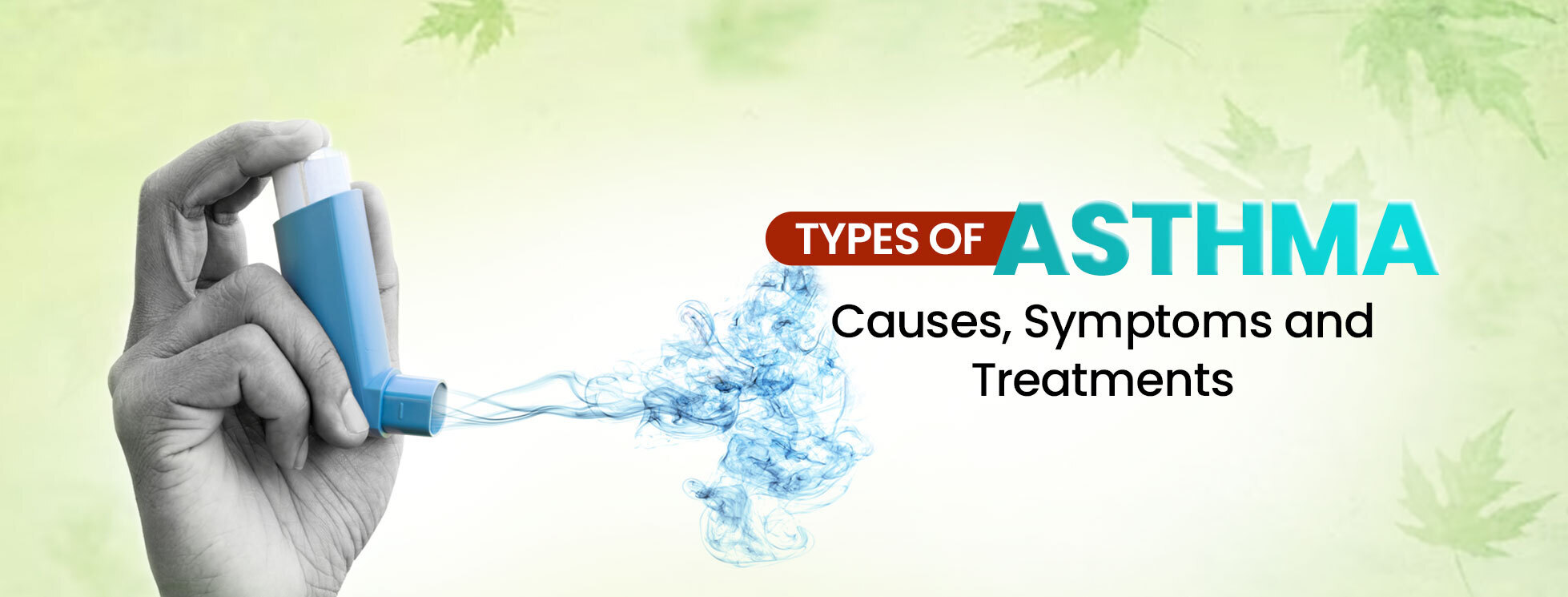Asthma is a chronic respiratory disease. Allergens, air pollution, and respiratory infections are a few environmental factors contributing to asthma in susceptible individuals. Here are the risk factors and causes of asthma
Types
Asthma can take numerous forms, some of which are as follows:
- Allergens like dust mites, pollen, animal dander, and mould can trigger asthma episodes in people allergic to them.
- Allergens, exercise, cold air, stress, or a respiratory illness can trigger non-allergic asthma.
- Occupational: Asthma brought on by exposure to irritants and chemicals on the job.
- Asthma produced by physical activity is said to be "exercise-induced."
Causes
The following are examples of common asthma triggers:
- Dust mites, pollen, animal dander, and mould can trigger asthma attacks. Some foods trigger asthma and should be avoided.
- Some people with asthma find that exercise and other forms of physical activity bring on their symptoms.
- Stress and other intense emotions might be a factor in bringing on an asthma attack.
Symptoms
Asthma symptoms include the following:
- Wheezing is defined as making a whistling or squeaky sound during breathing, most notably when exhaling.
- Inability to take a deep breath; the sensation that your lungs are being compressed.
- Tightness in the chest: a sensation of constriction or pressure.
- Persistent coughing, most noticeable at night or first thing in the morning.
- Feeling as though not enough air is entering the lungs is the hallmark of breathing difficulties.
Treatments
Here are some of the allergic asthma treatments:
- Breathing is facilitated by bronchodilators, drugs that ease the muscles around the airways.
- Immunomodulators are drugs used to treat severe asthma by dampening the body's immunological response.
- Immunotherapy, or allergy shots, effectively reduces allergic asthma symptoms.
- Consult a doctor to create a treatment plan for your asthma specific to your condition and symptoms.
Ayurvedic Remedies for Asthma
Ayurvedic remedies can be beneficial in symptom management. Some Ayurveda for asthma tips entail:
Ginger:The anti-inflammatory effects of ginger may be useful in reducing airway irritation. Ginger can be incorporated into your diet by drinking ginger tea or cooking fresh ginger.
Turmeric:Another herb with anti-inflammatory effects is turmeric. Drinking turmeric milk or cooking with turmeric are also great ways to include more turmeric into your diet.
Tulsi:Tulsi, sometimes called holy basil, has been used for ages in Ayurvedic medicine to alleviate lung conditions. Tulsi tea can be sipped hot or cold, and fresh tulsi leaves can be chewed.
Yoga:The yogic breathing techniques known as pranayama can benefit people with asthma by increasing lung capacity and decreasing symptoms. Kapalbhati, anulom vilom, and bhastrika are only a few of the most frequent pranayama techniques.
In the end…
Some persons with asthma have no symptoms at all. In contrast, others' symptoms manifest only under certain circumstances, such as when they are physically active or when they are exposed to their triggers. In addition, it's crucial to see a doctor about your asthma symptoms because they may resemble those of other respiratory illnesses. For more details, you can contact VAYU, one of the best Ayurvedic centres in Bengaluru.
